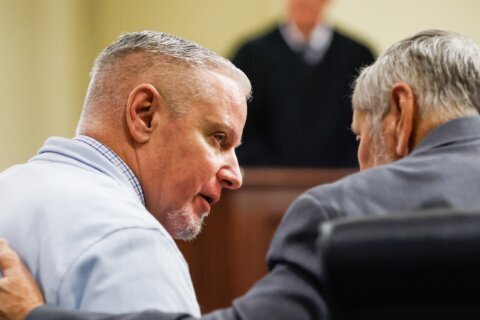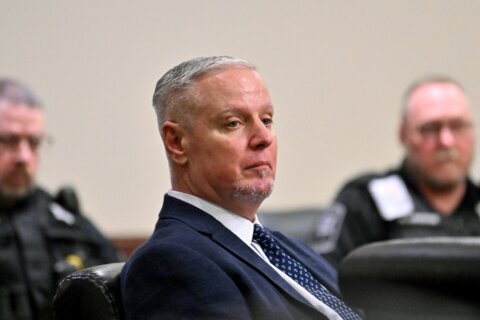After a mass shooting at Baltimore’s Morgan State University that injured five people on Oct. 3, university president David Wilson said the school’s proposing security upgrades, including a $6.4 million “security barrier” to protect the campus.
This week, American University sent out a letter to students and faculty to say that it’s considering whether the university’s police force should “be armed with lethal force weapons.”
Other colleges and universities in the D.C. area have made changes to deal with security on their campuses. Howard University hosted a public safety town hall in August after one student was stabbed not far from a residence hall.
In April, George Washington University announced plans to arm some members of its campus police force.
S. Daniel Carter, president of SAFE Campuses LLC, said one of the challenges universities face is balancing the need for safety with the desire to provide the “openness of a college or university.”
In an interview with WTOP, Carter said finding that balance is not an easy task for any campus. “Because you could have a locked down fortress and be as safe as you can be,” he said, “but you would lose what it is to be a college or university.”
“On the other side,” he said, “you could have a wide-open campus, but it wouldn’t be safe.”
The key for all college and university communities, Carter said, is to make sure that all interested parties, students, faculty, the administration and the wider community have input along with safety and security experts.
The other element needed to provide for improving security is “adequate resourcing,” he said.
Developing campus security plans and programs isn’t a one-size-fits-all proposition, according to Carter.
“It involves a lot of thoughtful deliberation,” he said. “There are going to be some tough calls between, say, providing an adequate level of policing to keep bad actors from engaging in crime and being respectful of the needs of the broader community.”
Carter said the job for campus police and security staff is also uniquely challenging. Campus police and security teams play a variety of roles.
“It’s not just about upholding the law,” Carter said. “It is so much more than what many local law enforcement agencies are responsible for.”
He explained that providing public safety to the campus is core to the job of police and security staff on college and university campuses, but it isn’t their only job.
“They patrol much like a private security team would. Carter said, adding that, “they also need to be good community members, they need to be very helpful, they need to be very visible,” and in ways that are outside the role of municipal or state law enforcement.
“They’re there to help when someone gets locked out of a building, they’re there to help when someone’s car won’t start” and he said, balancing all those roles is ” such a critical element that’s got to be gotten right.”
Campus safety is at the heart of something called the Clery Act, a federal law that requires colleges and universities to meet certain responsibilities with regard to safety and security of students on campus. Signed into law in 1990, the law requires institutions of higher education to record and produce an annual report on campus crime statistics and policies regarding safety.
Carter urges prospective students and their parents to get those reports. While he said statistics included will focus on “the tightly controlled campus area.” he said, “you’re also going to get a bunch of information about what security steps are being taken to protect the campus, what safety steps are being taken to protect students from alcohol and other drug abuse and sexual misconduct.”
“All of that’s in that report. Get informed,” Carter said.
He also suggests checking local media about crime that’s occurred near a college or university campus before deciding on a school, “so you’re not surprised.”
Finally, Carter said, when it comes to creating a safe campus environment that retains its connections to the larger community, “I’m not sure there is a perfect response and it’s always a learning process.”
For information on the Clery Act, you can visit the Clery Center.








